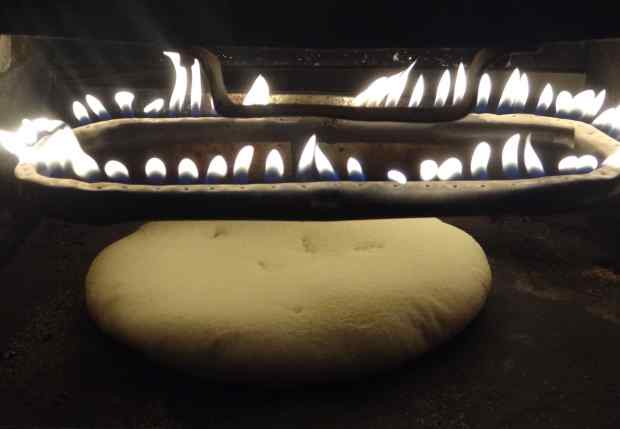
Bread. Or ‘hobbz’ to anyone in the Arab world, including Morocco. I was sure I’d heard ‘Hobbs’ in relation to bread before, was it a brand? Here, in any case, it is much more than that.
Women in Morocco make bread. Clearly not all women, but a lot more women than I would have expected. A mother of five children, with a family shop that sells bread, nevertheless makes her own bread. The husband says it’s her job. The bread in their shop is just bought in for selling to customers (like me). My neighbour who often works a 10-hour shift packing peppers to go to Europe, makes her own bread. This isn’t just the occasional loaf, it’s enough to eat with every meal, every day. When I say eat with, I mean instead of a fork, and as an accompaniment to the meat, veg and dried apricot if you are lucky. Even an academic with two children, a full time job and writing her thesis, makes her own bread.
Obviously the double shift for women is nothing new to us. Although just because it isn’t new, it doesn’t mean it isn’t worth noticing. That’s what I’ve been doing recently, noticing things. Other people work and make bread. I notice things. People also notice me. So it’s not a one-way process. Sometimes I notice people noticing me. In every country I’ve been a foreigner there is a word, you just have to listen for what it is. I’d recognise myself as ‘la Gringa’ in Latin America, ‘Guirri’ in Spain, or ‘Gainjin’ in Japan. I now recognise myself as “l’Goeriya”. Or, in the Spanish pronunciation even better: “Goerilla”. In hindsight, I think Gringa sounded pretty good!
If you want to understand something I sometimes think it’s worth skirting around the edges first: what is not the thing you want to understand? I want to understand seasonal work. So what do people do when they aren’t at work? Maybe that’s what I’ve been noticing recently: the bread-making, the floor sweeping, the hand-washing of clothes (I get to take part in that one). It means things are coming more into 3D. You don’t just see a worker you see a person in their context.
The same goes for the Goerilla. I’m fast losing novelty value, so if I expect people to continue having patient conversations with me, I’d better get 3D fast. People don’t want to talk about their work all day. The art of staying put is quite different to the art of travelling and arriving. For a start if I’m not making bread I can at least make some salad. However, I have found something that is more interesting to people than my (lack of) bread-making. I have found a job.
I was tempted to go for a job picking veg, but I think that could lead to trouble and I’m told to be careful several times a day. So English teacher it is, only a few hours. It costs me nothing to share my ‘goerilla-ness’ in Thursday and it doesn’t cost them either. Languages are the currency of social mobility in Morocco. In all major cities middle class children go to bilingual or trilingual schools and have private tutoring and classes in the evenings, adults too if they want to. There is no after-school tutoring in my town, people with good language skills tend to socially move themselves elsewhere. So you could argue that I’m helping a process of westernisation and globalisation, which would be true. I might contribute to people understanding the terrible songs that are on the radio. However, this isn’t preaching in an untouched village, it’s sharing words with people who don’t want to pick Europe’s tomatoes forever.
There’s one more thing about bread. It gets recycled. It’s the one thing. Other things might be re-used, if they are put in the bin and perhaps taken out again. Or more likely all the disposable stuff will just begin to blend in with the rubbish and rubble on the streets. So the bright pink yogurt pot will slowly fade as it’s trampled into the sandy ground. That’s not the case with bread. Bread is separated and saved. It has a detectable ecological cycle. The crusts and end are collected up, dried out in the sun, collected on a horse driven cart and taken to be eaten by the ‘bugra’ – the cow – as I was told my landlord, but I think the horse gets a bite too.
Conflict of interests: The writer admits to disliking yogurt, and enjoying her daily bread. Personal preferences may therefore have affected the analysis above.
2 Comments